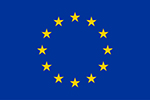The PRIMA 'CERERE' Project
The PRIMA Programme supports research and innovation for sustainable food systems and water resources in the Mediterranean region. With 269 projects funded across the Mediterranean , PRIMA fosters international collaboration to address critical challenges in food security, water management, and agricultural sustainability.
The CERERE project (CEreals REsiliency REvolution for agile supply chain management in the Mediterranean) is an ambitious initiative born from an international consortium of partners operating across the Mediterranean region. Funded under the PRIMA Programme 2023 – Section 1 – Food Value-chain 2023 , Topic 1.3.1 (RIA) – Increasing resilience of agri-food supply chain (cereal) in the MENA region , with Grant Agreement No. 2331 , the project aims to revolutionize the resilience and viability of cereal supply chains.
The primary goal of CERERE is to enhance the resilience of cereal supply chains to address the growing frequency and magnitude of global threats, including geopolitical tensions, climate change, and other disruptions. By leveraging cutting-edge technologies such as IoT, AI, Digital Twins, and Simulation-Based Optimization , CERERE provides innovative solutions to ensure the sustainability and long-term viability of cereal production and distribution systems in the Mediterranean and MENA regions.
SQLI's Role & Responsibilities
Key Responsibilities
1. WP4 Lead Contributor :
- Technical Architecture Design : Developing scalable, real-time data-driven architectures for early disruption detection.
- Mobile/Web Applications : Creating multi-platform applications for business performance analysis.
- E-Living Lab Development : Establishing a centralized repository for supply chain data visualization.
2. WP6 Integration Lead :
- Ensuring seamless integration, testing, and deployment of the CERERE SaaS platform.
- Leading CI/CD implementation for reliable releases.
3. Technical Excellence :
- Ensuring interoperability, scalability, security, and user-centric design across all digital solutions.
- Designing and executing integration tests, user acceptance testing, and continuous improvement.
Technical Leadership Areas
Early Warning System Architecture
Task 4.1
Supply chain Mobile/Web App Development
Task 4.3
E-Living Lab & Data Observatory
Task 4.4
Integration Testing & Deployment
Task 6.2 & 6.5
Resource Allocation
WP4: Situation Awareness & Early Warning
30 PMs / M07 - M36
WP6: Platform Integration & Deployment
32 PMs / M07 - M36
WP4: Early Warning Systems & Digital Tools
Technical Architecture
Lead of Task 4.1: Developing a scalable, real-time data-driven architecture for early disruption detection.
- Requirements gathering & integration strategy
- HW/SW identification & network design
- Data model & UML diagram development
- Deliverable D4.1: Early warning system technical architecture
Supply chain Mobile/Web App Development
Lead of Task 4.3: Creating a multi-platform application for business performance analysis.
- Frontend/backend development (HTML5, CSS3, JavaScript)
- Features: real-time data access, trade matching, analytics
- Multi-language support & GPS integration
Deliverables D4.4 & D4.5: App & documentation
E-Living Lab
Lead of Task 4.4: Developing a centralized repository for supply chain data.
- Data fabric architecture for seamless integration
- RESTful API for external data sources
- Interactive visualization dashboards
- Deliverables D4.6 & D4.7: Platform & documentation
WP6: Platform Integration & Field Experimentation
SQLI's Leadership in WP6
SQLI leads the critical integration phases of the CERERE project, ensuring all components function as a unified platform:
- Task 6.2 Leader: First integration tests and integrated platform beta version [M25-M30]
- Task 6.5 Leader: Second integration tests and integrated platform deployment [M30-M36]
- CI/CD Implementation: Automated testing and deployment pipelines for reliable releases
- Key Deliverables: D6.2, D6.6, D6.7 (CERERE integrated platform)
Integration Workflow
Component Preparation
Ensuring all modules from WP4 and WP5 are ready for integration with proper APIs and data models
First Integration Testing
Validating data flows, API interactions, backend services with sample datasets
Beta Platform Release
Performance testing, gathering user feedback, and identifying vulnerabilities
Component Refinement
Addressing issues found during first integration and enhancing functionality
Final Deployment
Full platform deployment with access through project website for wider use
Technical Architecture & Key Deliverables
CERERE Platform Architecture
FIWARE-based Middleware
Open-source infrastructure for smart agriculture data integration
APIs & Gateways
RESTful interfaces with secure authentication and access control
Data Models
JSON/XML schemas ensuring consistent data structure
CI/CD Pipelines
Automated testing, integration and deployment processes
Integration Approach:
Modular component architecture for flexibility and scalability
AI modules connected to decision support systems
Comprehensive security and data privacy implementation
Key Deliverables & Milestones
D4.1
Early Warning System: Technical Architecture
Scalable, real-time data-driven system design
D4.4
Mobile/Web App for Business Performance
Real-time data access and analytics platform
D4.6
E-living Lab & Observatory
Centralized repository for supply chain data visualization
D6.2
Results of First Integration Tests
Component validation and integration verification
D6.6
Results of Second Integration Tests
Final validation after improvements and refinements
D6.7
CERERE Integrated Platform
Final SaaS solution with all modules integrated
Conclusion
The CERERE project represents a transformative step toward building resilient and sustainable cereal supply chains in the Mediterranean region. By combining innovative technologies with stakeholder collaboration, CERERE aims to empower farmers, distributors, and processors with the tools they need to thrive in an increasingly unpredictable environment.
As part of the PRIMA Programme, CERERE aligns with broader goals of enhancing food security, promoting sustainability, and fostering regional cooperation. Together, we are paving the way for a more resilient future.


